TRAIL RUNNING
This book has been very carefully prepared, but no responsibility is taken for the correctness of the information it contains. Neither the author nor the publisher can assume liability for any damages or injuries resulting from information contained in this book.
Jeff Galloway
Trail Running
Meyer & Meyer Sport
British Library Cataloguing in Publication Data
A catalogue record for this book is available from the British Library
Jeff Galloway: Trail Running
Maidenhead: Meyer & Meyer Sport (UK) Ltd., 2014
ISBN 9781782550112
All rights reserved, especially the right to copy and distribute,
including the translation rights. No part of this work may be reproduced
including by photocopy, microfilm or any other means
processed, stored electronically, copied or distributed in any form whatsoever
without the written permission of the publisher.
2014 by Meyer & Meyer Sport (UK) Ltd.
Aachen, Auckland, Beirut, Budapest, Cairo, Cape Town, Dubai, Hgendorf,
Indianapolis, Maidenhead, Singapore, Sydney, Tehran, Wien
 Member of the World Sport Publishers Association (WSPA)
Member of the World Sport Publishers Association (WSPA)
www.w-s-p-a.org
Printed by: B.O.S.S Druck und Medien GmbH, Germany
ISBN 9781782550112
eISBN 9781782553526
E-Mail:
www.m-m-sports.com
Contents
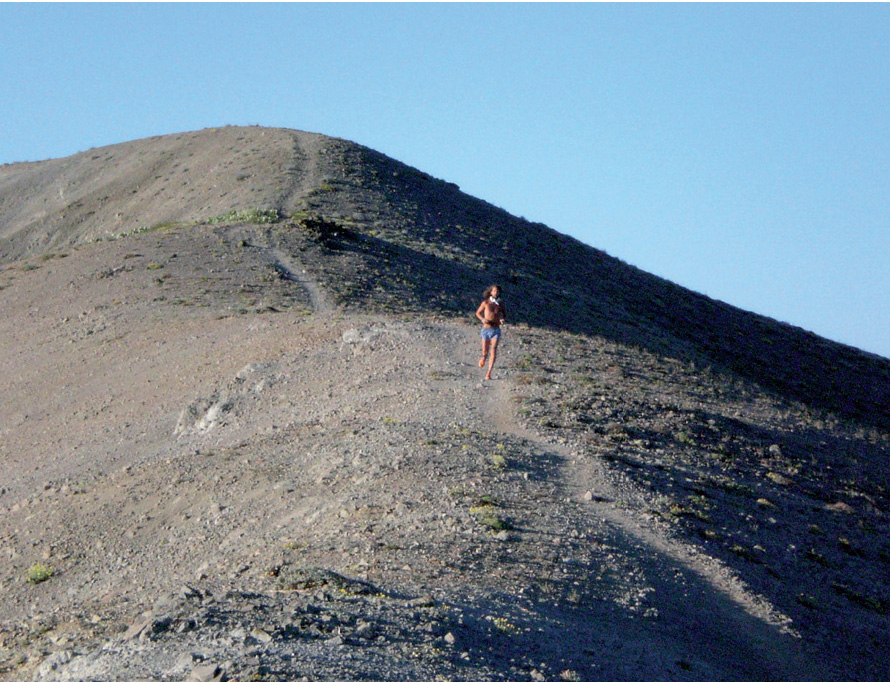
Chapter 1: Introduction: Trail Running Got Me Hooked on Running
My first few trail runs did not bring much joy. I was 13, lazy, overweight, and in poor physical shape. Due to my fathers Navy career, I had attended 13 schools by the time I finished the 7th grade and had not been involved with team sports or regular physical training of any type. At this point my father became a teacher, we moved to Atlanta, and my new school required each boy to work out with an athletic team after school every day. This was a major jolt to my lazy lifestyle, and I didnt like it.
During the fall I tried football, which was a total disaster from my perspective, and even more so from the view of my coaches. Before choosing a sport for the next quarter, I asked several of the other lazy kids for their choices and was surprised to hear that many had chosen Winter Cross Country Conditioning. The consensus among the slackers was that the coach was the most lenient in the school. Tell him you are running on the trails, and you only have to jog 200 yards to the woods and hide out.
I did just that for two days. On the third day, an older athlete I liked came over to me and said, Galloway, youre running with us today. I quickly came up with my strategy: As we entered the woods, I planned to grab my hamstring, claiming a muscle pull. But the jokes started right away, and I kept going to hear the punch line. As we entered the trail system, they were exchanging gossip about the teachersand I wanted to hear all of it. I didnt last long the first day, struggled to adjust to the surface, and walked most of the way back to the school.
The primitive satisfaction of running trails combined with honest friendships and social fun kept me coming back, day after daybut it was hard work. The biggest surprise was how good I felt after a run. The after-run attitude boost was better than I had experienced after any activity during my young life.
There was also something special about the trail experience. Every step was a challenge at first, and I suffered my share of ankle turns and stumbles. With the support of the group, I experienced a unique sense of empowerment from overcoming each challenge.
Week after week I felt my body adapt and improve. The stumbles and aches became fewer and less painful. I began to sense that my feet were making intuitive adjustments to new terrain. I was becoming a trail running animal, and I liked it.
My spirit is energized after every runbut trail running does it better. Touching the earth in a natural environment engages parts of the mind-body network that are not activated on other runs. I felt energized by every trail run during my first few weeks and looked forward to the next one.
The most wonderful aspect of being on the trails after school was the special sense of freedom that can be encountered only on a trail run. When running down the trail, stress melted away: the demanding academic program, conflicts with fellow students, pressure from teachers and parents. As I moved along through the forest and along the creek, I was the king of the trail.
While the causes of stress in my life are different over 50 years later, I enter the same type of enhanced mental restoration today. I love trails!
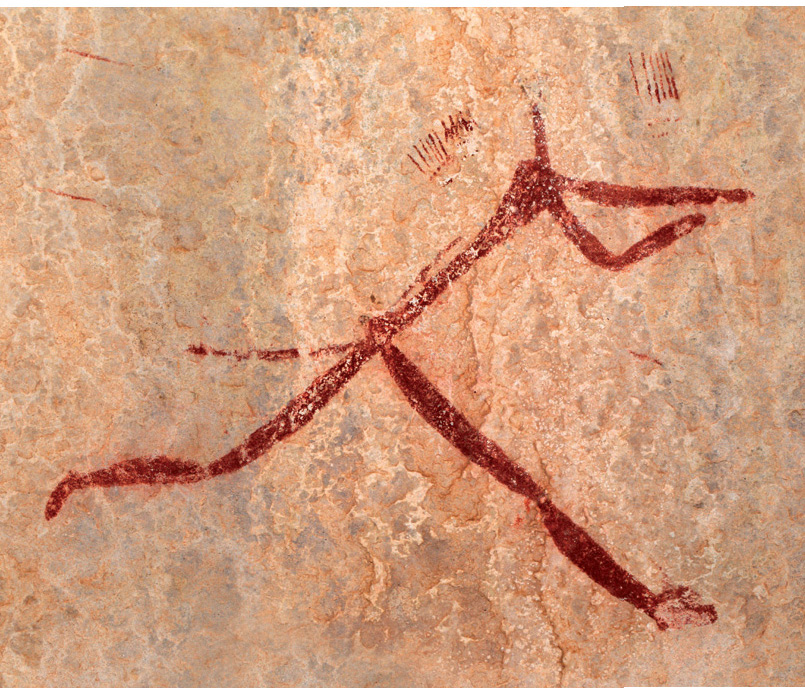
Chapter 2: We Are Hard-Wired to Be Trail Animals
Anthropologists who specialize in ancient man tell me that our ancestors survived because they kept extending their ability to cover long distances on foot. Walking with some running became the mode of transportation. Before our ancient relatives developed strategies for hunting and later, farming, they roved through forests and plains.
The more ground covered, the greater the chance of finding food. As our forebears pushed back the physical barriers, they developed physiological and mechanical adaptations to keep goingand going and going.
During the period prior to one million years ago, our ancestors moved from quadruped to biped capabilities and had to solve many problems during the daily journey for food. Trail challenges stimulated brain development in the frontal lobethe human brain.
Our mind-body organism responds to challenges: When encountering rocks, it is natural to pause, adjust the step, and make little, necessary adjustments. Running requires one to be at a high state of readiness to avoid tripping or stepping in a hole, while maintaining balance and looking ahead to the next challenge.
Scientists have noted that when were running, thought activity tends to be in the conscious brain, in the frontal lobe. Other animals dont have this executive brain resource that allows us humans to be in the moment, to make decisions, and to plan strategically. Neuroscientists believe that during the period of time from 2 million BCE to 1 million BCE, our ancestors expanded their roaming range to find food. As they became endurance animals, they began to band together for survival, developing the human traits of cooperation, trust, and supportwhile expanding frontal lobe activity.
We return to our roots as we run down the trail.
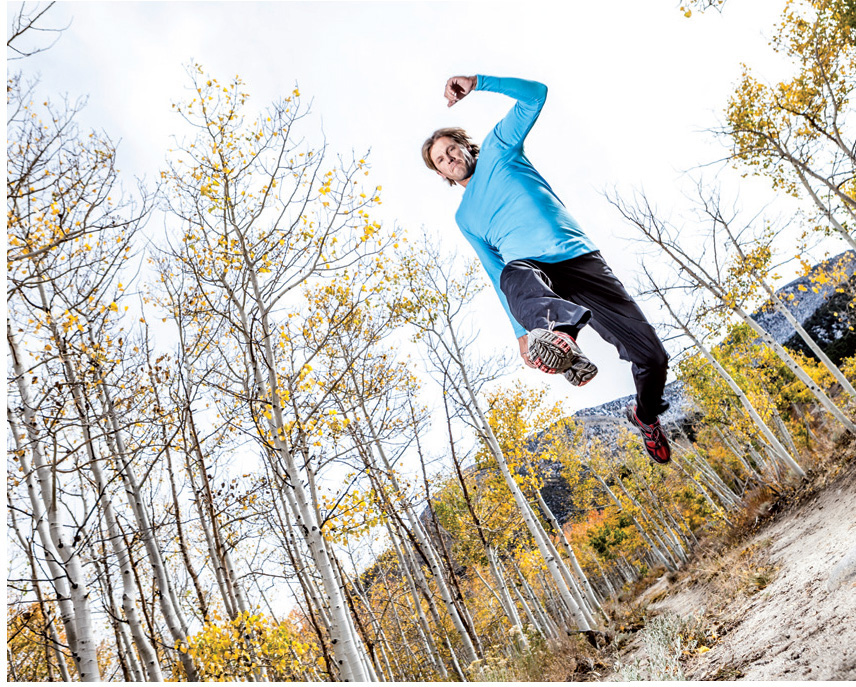
Chapter 3: Benefits of Trail Running
As you move along a trail through forest, desert, or parkland, you enter a different state of mind. Youre constantly interacting with the ground, vegetation, elevation change, and a variety of sounds and aromas. Mind-body activity is elevated to a higher level of awareness to be ready to react. Youre living in the moment and interacting with life around you as you move forward.
The journey: Our ancestors programmed us to move from one point to another along the trail. Forward movement is positive and fulfilling. Intuitively, as we move forward, we can solve problems and enjoy the satisfaction of exertion in nature. There is a feeling of empowerment in finishing any run, but the sensation has almost always been better at the end of a trail workout.
Next page
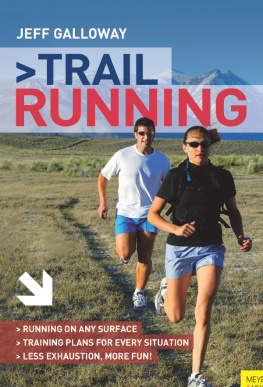



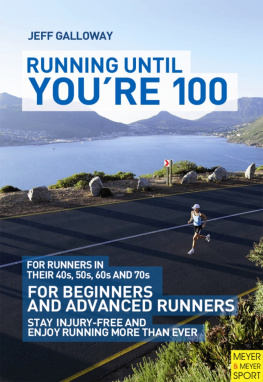

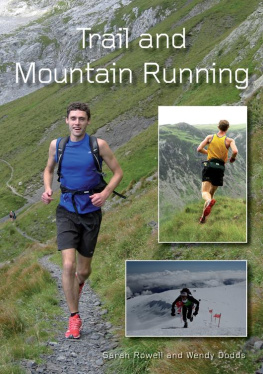

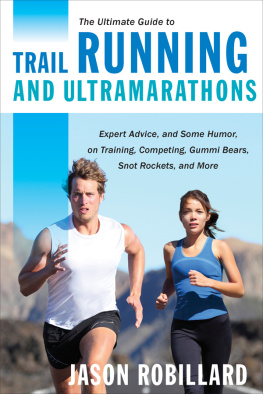
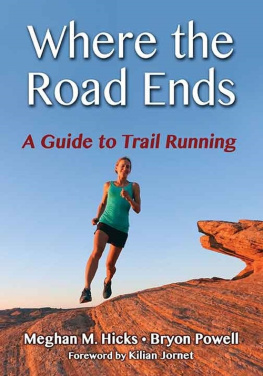

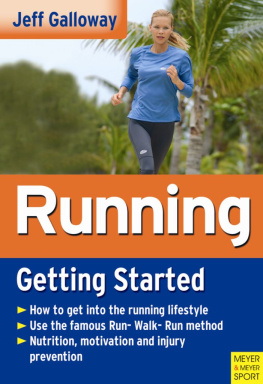
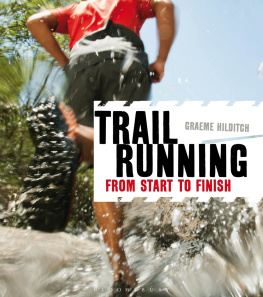
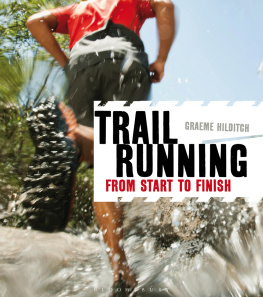
 Member of the World Sport Publishers Association (WSPA)
Member of the World Sport Publishers Association (WSPA)

